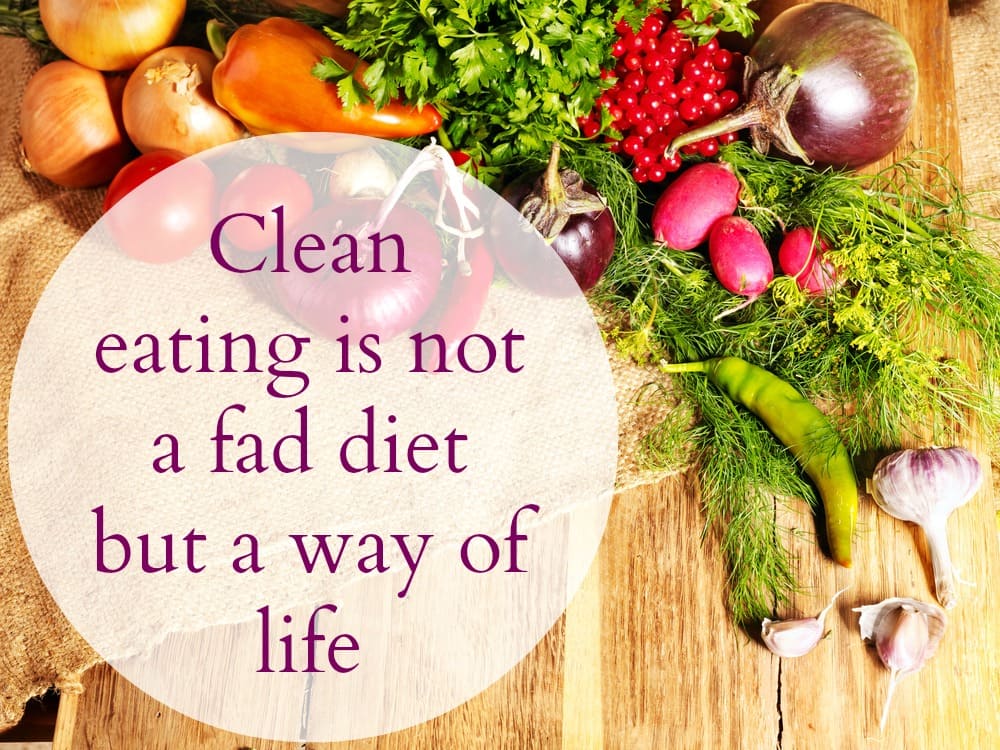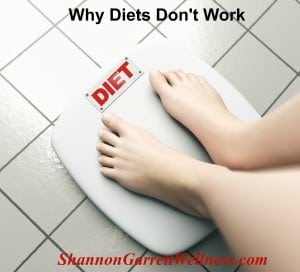
Does this sound to familiar? You hear about this wonderful diet that will guarantee weight-loss, and all the celebrities and mainstream media are raving about it and you feel you just have to try it! So you do, and it does work at first – and then you are left with gaining more weight back almost as soon as you lost it.
Don’t feel bad because you’re not alone. Just because a diet works for one does not mean that it will work for the masses, including you, me, or anyone. The truth is, diets are designed to fail and this should come as no surprise when you think about it. After all, the word “die” is within the word “diet.” The minute you engage in a diet, your subconscious mind immediately adopts a thought process of being denied something, and in this case it is food. It drives you to focus more on what you can’t or shouldn’t have instead of what you can. This really teaches nothing long term. Are you aware that this the number one force that causes you to fail? You see, it’s not about will power here…there are other aspects involved and it’s not your fault. Coincidentally, the mega million dollar weight loss industry knows this fact about the human condition. Let me ask you this: if diets worked why do popular weight loss entities have a high volume of repeat (and loyal) customers?
Again, let me say that the word “die” is within the word “diet.” This should be your first sign. You want to live your life with vitality and with a sense that you’re thriving every day – not in deprivation mode.
Here are the top 6 reasons diets are doomed to fail:
- People choose to use a diet to achieve short-term goals. The main goal is usually to lose weight before an upcoming or special event. Diets are perceived from the onset as a temporary action used to obtain an immediate result. Once the result is achieved, the diet is terminated and previous eating habits return.
- The yo-yo diet or weight-cycling. As I’ve pointed out, many people go on diets, lose weight, and then gain weight…often more than they lost. And for some reason, the cycle is repeated. To quote Albert Einstein: “Insanity is doing the same thing over and over and expecting different results.” This repeated failure can have negative effects on a person’s mental and emotional health and could result in an eating disorder. Dieter’s are not insane…misguided perhaps, and it’s not their fault – but not insane.
- Many diets are based on the premise of counting calories using a formula meant for the general population as opposed to the individual and based on their needs. Everyone processes calories differently. The formula we all hear about supports that caloric expenditure exceeds caloric intake and will therefore promote weight loss. Pretty simple right? Except for the reality that it doesn’t work for most people, and it has become very clear that this premise is no longer true. Add a thyroid or other hormone imbalance to the mix and this formula for weight management is almost a joke. Calories are not evil per se (actually, it’s chemicals that are the real problem) and every calorie is not created equal – remember learning this in high school? I certainly do – we learned about “empty calories” all day long. Calories consumed from spinach or sweet potatoes are much more nutrient-dense than calories consumed from a processed, packaged, low-fat muffin. In addition, if you were to consume too few calories, your body goes into survival mode, slowing down the metabolism. You run the risk of your metabolism remaining sluggish once you start consuming more calories.
*We need calories to live…every function by the body requires calories. - Before even starting a diet, people believe they will be depriving themselves of foods they love. Entering into a program with this mindset clearly does not support success! This constant subconscious to conscious experience of deprivation will trigger intense food cravings that will be difficult to ignore, much less conquer. Again…it’s not about will power here…it’s physiology and the drive of the subconscious mind can be challenging to overcome.
- Many foods today are laden with chemicals, food colorings, preservatives, additives we can’t pronounce and other toxins. Many diets focus on packaged/processed low-calorie meals. All of those packaged weight loss foods in the frozen section of the grocery are often a popular choice, but have you ever notice the sodium count? It’s becoming increasingly difficult for many people to process all the junk found in our food supply. At some point our immune system and body finally says “no more,” because it has reached its tipping point; then, unbeknownst to us, responds to certain foods by causing inflammation in the body. This may be anything from nasal congestion, to blurred vision, to muscle or joint pain to gastric distress, bloating, and more. In order to lose weight and keep it off, this is one more piece of the puzzle: if weight loss and weight management is your goal, you’ve got to discover which foods are causing inflammation in your unique body.
- This brings me to the last reason why diets don’t work (and never will). They do not address food cravings and how to handle them. Everyone has cravings for goodness sake. Having tools for success to help navigate through these episodes and learn to actually want to reach for healthy food alternatives will help eliminate them. Counting calories doesn’t do this…eating packaged/processed weight loss foods won’t do it either. Return to my points in #5 as a reminder.
Unfortunately, for many individuals, diets only offer a quick fix to a larger problem. Learning which foods nourish your individual body and which do not is the best approach to eating in order to obtain effortless weight loss and optimal health. We are meant to enjoy food…love foods that nourish our body as created in nature. I am always amazed whenever I’m working with someone during one of seasonal clean-eating programs when I hear (in response to eating real, clean, unprocessed foods) “Wow…I’m really going to have to try to get used to this!” Meaning, the packaged and processed foods are all they know. Let’s get back to basics by eating mostly local, organic (when possible) foods of the season in their natural state.



